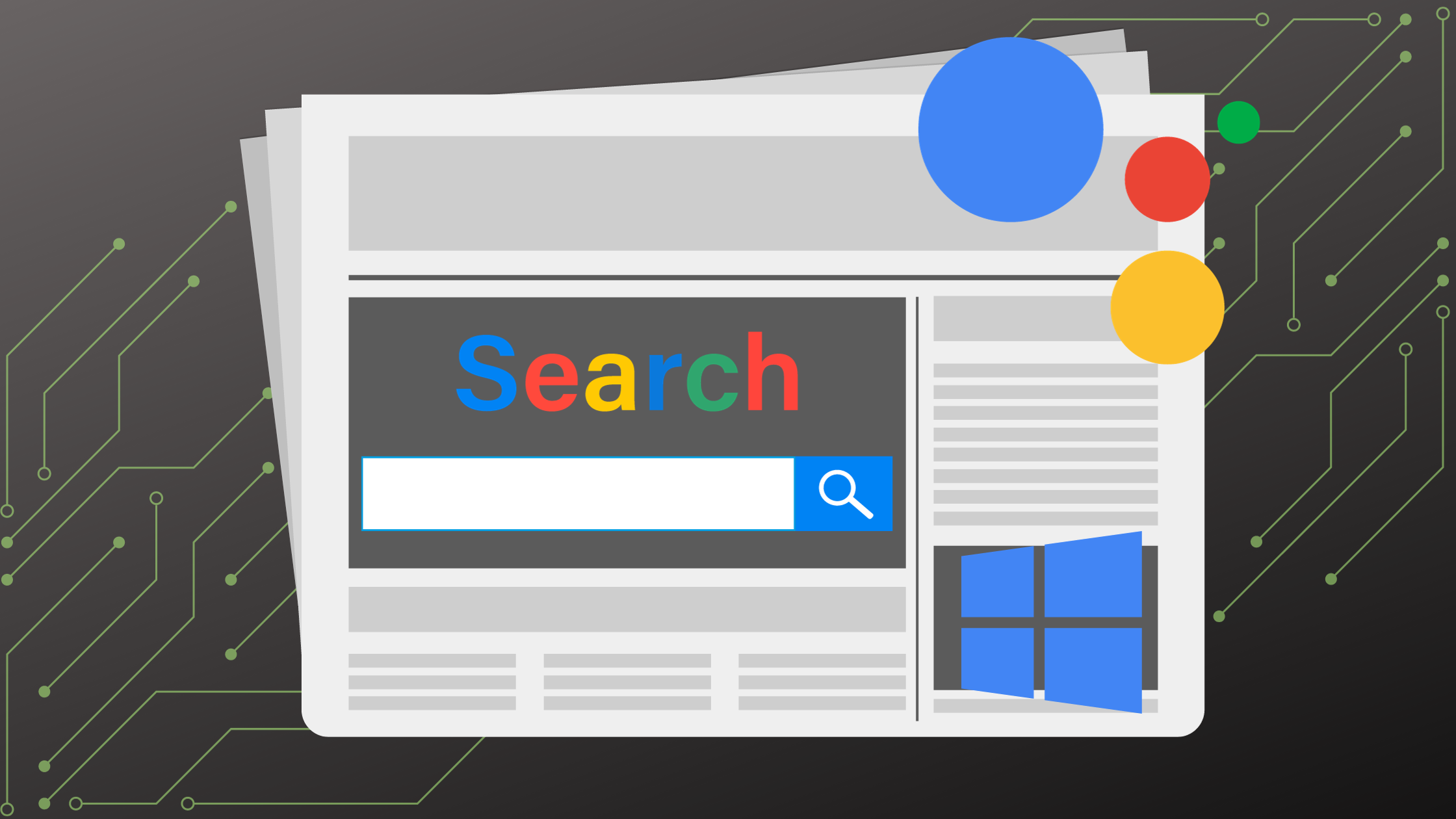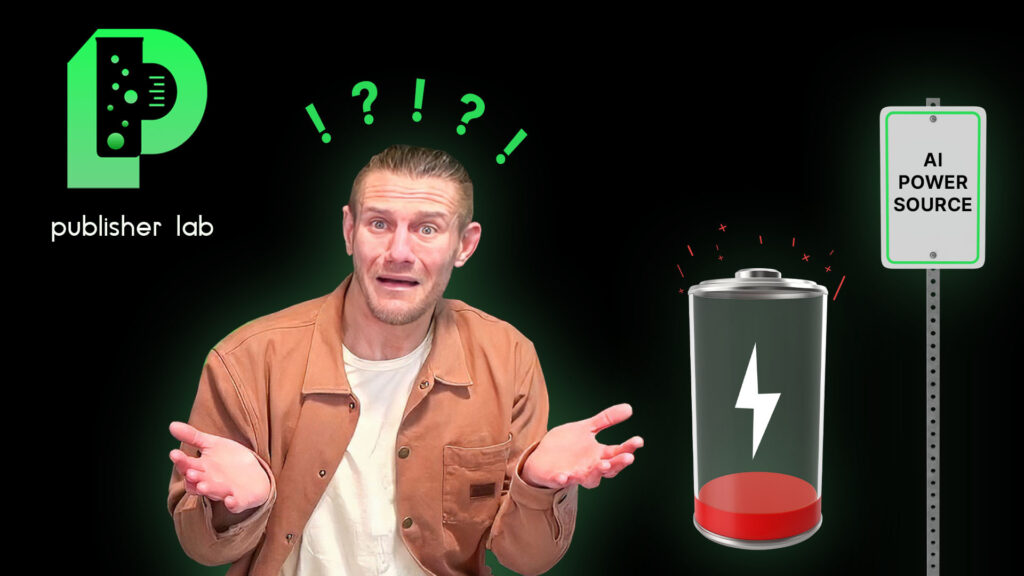
Google Unveils Innovative Search Tool as Microsoft’s AI Shift Sparks Controversy: Publishing Pulse

Get helpful updates in your inbox
Welcome to Publishing Pulse, your weekly source for industry updates in online publishing. Stay informed about the latest trends and breakthroughs in the ad ecosystem, content creation, SEO, AI technology, and monetization.
If you prefer to listen to industry news, you can tune in to The Publisher Lab podcast. New episodes are released weekly on Thursday.
New Google Search Labs feature, Notes
Google is launching “Notes,” a new feature in Search Labs that enables users to share their knowledge on search results. This opt-in experiment allows adding human insights to search results, offering a richer context. Users can find and contribute tips, advice, and personal experiences, making search results more comprehensive. Accessible through the Google app and on Discover articles, “Notes” lets users create contributions using text, stickers, photos, and various visual styles.
Prioritizing safety and quality, Google uses algorithmic protections and human moderation to ensure the notes are relevant and valuable. Initially available in the U.S. and India in English and Hindi, this feature is part of an ongoing effort to enhance user interaction with search results by incorporating crowd-sourced content and personal perspectives.
Google Antitrust Trial Updates: Microsoft CEO Testifies Against Google
Satya Nadella, Microsoft’s CEO, testified in Google’s antitrust trial, voicing concerns about Google’s market dominance, especially regarding its effects on Microsoft’s search engine and competition in AI development. Nadella accused Google of using business deals to hinder Microsoft’s search engine and similar tactics in AI, while Google countered by highlighting user preference for their search engine over Microsoft’s Bing, despite Bing being promoted on Windows computers. The rivalry between the two tech giants, escalating in the AI sector, has roots in longstanding antitrust issues.
The U.S. government’s lawsuit against Google focuses on its contracts establishing its search engine as the default in browsers and smartphones, a point of contention for Microsoft. Despite Bing being the second-largest search engine and its AI enhancements, it has struggled to compete with Google.
“I find it quite interesting because both of these companies are doing the exact same behaviors and activities,” says host Tyler Bishop on this week’s episode of The Publisher Lab podcast, “They even have partnerships with each other in different arms of business, where they’re essentially doing this to others.”

Microsoft’s attempts to make Bing the default engine on Apple’s Safari browser were unsuccessful. This rivalry, dating back to the internet’s early days, has seen phases of attempted dispute resolution and increased regulatory complaints and lobbying efforts in recent times, impacting not just their relationship but the broader tech and regulatory landscape.
Microsoft Replaces News Editor With AI, Which Leads To Uproar
Microsoft’s shift from human editors to technology for curating content on platforms like MSN.com and Microsoft Start has resulted in problematic publications. While MSN.com previously had 800 editors handling news stories in 2018, their current numbers are uncertain due to layoffs in 2020.
This reliance on editorial AI has led to the publication of stories from dubious sources and the dissemination of false information, tarnishing MSN’s credibility. A particularly controversial incident involved a poll attached to a Guardian article about a woman’s death, sparking significant backlash and prompting a formal complaint from The Guardian’s CEO.
“AI, you don’t want to be your editor, you don’t want it to be your CEO, you don’t want it to be the person in charge,” says Tyler. Microsoft is deactivating polls on news articles and conducting an investigation to avert future instances of such inappropriate content.
X Prepares For Major Algorithm Update
X (formerly Twitter) is set to roll out a significant algorithm update, focusing on amplifying content from smaller accounts and users beyond one’s existing network. This change aims to enhance content discovery, giving smaller creators more visibility and the chance to reach a broader audience. This update aligns with X’s ambitions to transform into a creator-centric platform.
To attract and support creators, X has introduced various features, including long-form posts, increased character limits, video uploads, and an ad revenue-sharing program. These initiatives are geared towards enabling creators to grow their audience on X and monetize their content through both ad revenue and subscription models. Additionally, X incorporates features to facilitate direct interactions between fans and creators, like message requests and audio/video calling options.
Despite these efforts, the impact of the algorithm change remains to be seen, especially considering the dominant presence of platforms like YouTube, TikTok, and Instagram in creator monetization. X plans to release this update soon, making it open-source to foster ongoing enhancements.
Elon Musks ‘Age of Abundance’ With AI
According to The Wall Street Journal, Elon Musk anticipates an era of abundance driven by advanced AI and robotics, where digital superintelligence and automation significantly reduce the cost of goods and services. He foresees robots undertaking currently dangerous, tedious, or uncomfortable jobs, freeing humans to engage in other activities. Musk speculates that traditional work might become obsolete in about 25 years in countries that embrace AI and automation.
His vision includes a society where a high standard of living is universally accessible, with most things available in abundance except for unique items like art and real estate. This futuristic outlook shares aspects with socialism, but it also prompts questions about the distribution and control of resources in such a world.
While Musk is a proponent of this vision, he admits the challenge of aligning it with his personal, work-intensive lifestyle. He believes in the need for a certain level of suspension of disbelief to stay motivated, especially in a world rapidly evolving with AI and robotic advancements.
Rise Of AI Calls For Alternative Energy Sources
The rising energy demands of generative AI models, such as ChatGPT, are shaping a new market for data centers powered by alternative energy sources. With AI predicted to consume up to 3.5% of global electricity by 2030, there’s a pressing need to find sustainable energy solutions. Major tech companies like Amazon, Microsoft, and Google are exploring nontraditional energy sources including wind, solar, geothermal, nuclear, and flared gas for their data centers.
Crusoe Energy Systems, an energy startup, is pioneering the conversion of flared gas from oil production into electricity for data centers, thus reducing methane emissions and easing the strain on electric grids. The company plans to reach about 200 megawatts of power capacity by year-end to meet the demands of AI startups. The electricity required for training AI models is substantial, often equating to the annual energy usage of thousands of homes.
To address these growing needs, major cloud providers are heavily investing in renewable and alternative energy sources. Google, for instance, is delving into advanced nuclear and geothermal energy to ensure a sustainable and cost-effective energy supply. Sam Altman, CEO of OpenAI, backs the nuclear-fission startup Oklo, focusing on delivering high energy outputs suitable for future AI demands. While mini nuclear reactors for data centers are a potential solution, their widespread availability might not occur until later in the decade.
The construction of data centers is currently experiencing robust growth, fueled by the AI surge, cloud provider competition, and supply constraints. However, the expanding scale of AI models and their computing requirements is outpacing the efficiency improvements in existing technologies. The International Energy Agency highlights the urgency of transitioning to cleaner energy sources as the use of AI systems like ChatGPT becomes more widespread, leading to increased AI-related energy consumption.

Sarah is a social media expert and successful brand marketer. She has experience growing brands and content across multiple different platforms and is always on the cutting edge of emerging social platform and internet culture trends.
Featured Content
Checkout this popular and trending content

Ranking In Universal Search Results: Video Is The Secret
See how Flickify can become the ultimate SEO hack for sites missing out on rankings because of a lack of video.
Announcement

Ezoic Edge: The Fastest Way To Load Pages. Period.
Ezoic announces an industry-first edge content delivery network for websites and creators; bringing the fastest pages on the web to Ezoic publishers.
Launch

Ezoic Unveils New Enterprise Program: Empowering Creators to Scale and Succeed
Ezoic recently announced a higher level designed for publishers that have reached that ultimate stage of growth. See what it means for Ezoic users.
Announcement
